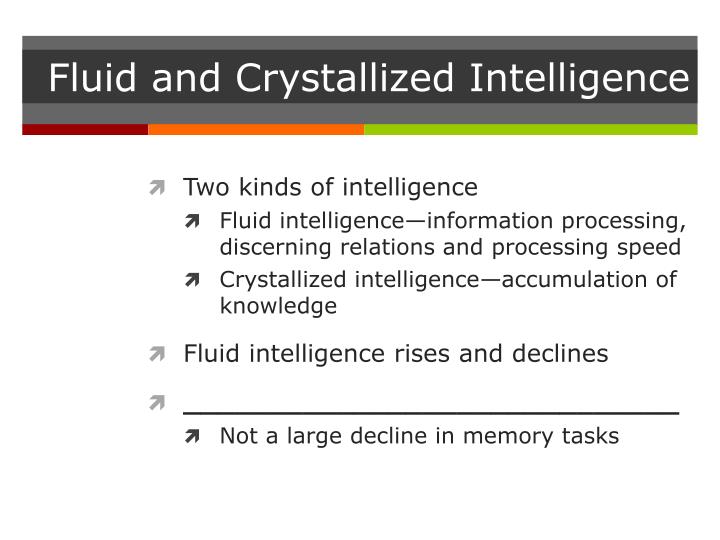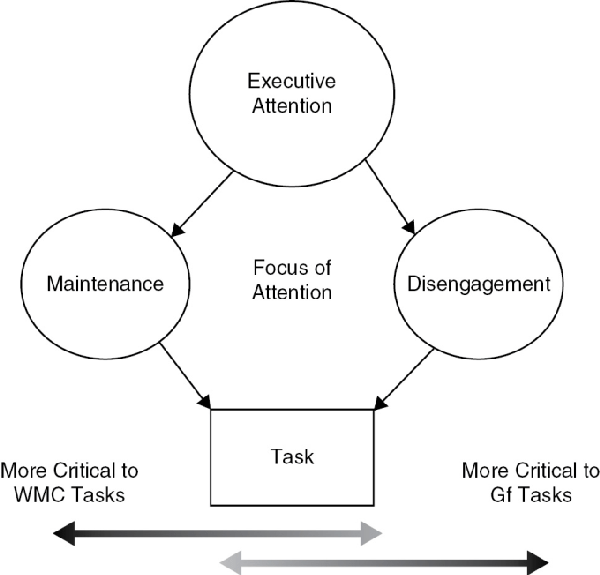
Others psychologists believe that instead of a single factor, intelligence is a collection of distinct abilities. Long before modern psychology developed, however, ancient philosophers, such as Aristotle, held a similar view (Cianciolo & Sternberg, 2004). Spearman focused on the commonalities among various intellectual abilities and demphasized what made each unique. British psychologist Charles Spearman believed intelligence consisted of one general factor, called g, which could be measured and compared among individuals. Giovanni Sala is a lecturer in psychology at the University of Liverpool in the UK and Fernand Gobet is professorial research fellow of psychology at the London School of Economics and Political Science.What exactly is intelligence? The way that researchers have defined the concept of intelligence has been modified many times since the birth of psychology.Regardless, many small and big fortunes stem from an intelligent use of the resources we are lucky to have been gifted with – whether they are intellectual, educational or socioeconomic. Granted, a good deal of individuals merely cash in the benefits of inherited privilege. Most, if not all, extremely wealthy people have been blessed by Lady Luck somehow.Ĭonversely, making the most of what luck brings us certainly matters. Many things that contribute to achieving financial success are beyond our control. We may even push the argument a bit further and conclude that being intelligent is a form of luck itself. Likewise, random strokes of luck (like winning the lottery) do not come from years of hard work. In the light of the evidence we have just reviewed, he may be right.īeing born into a wealthy and highly educated family is a fortunate event. “I’d rather be lucky than good,” says the character Chris Wilton (Jonathan Rhys Meyers) in Woody Allen’s film Match Point. That is, when it comes to getting rich, intelligence is neither sufficient nor necessary.
#FLUID INTELLIGENCE CONSISTS OF SERIES#
Furthermore, a series of fortunate events can clearly turn unremarkable individuals into high earners. Nonetheless, intelligence is no guarantee of getting rich. A fine intellectual ability improves the chances of getting rich. The study does not downplay the role of intelligence (or talent in general). This means intellect alone cannot account for the disproportionate disparities between rich and poor in our society. By contrast, wealth follows a “pareto distribution”, a formula which shows that 80 per cent of a country’s wealth is in the hands of only 20 per cent of the population. Intelligence is “normally distributed”, with most individuals being around average.

This study highlights that the statistical distribution of wealth differs from the distribution of intelligence. In fact, a recent study suggests that luck exerts a significant impact. However, these factors alone are unlikely to fully account for the individual differences in wealth. So intelligence, education and socioeconomic status all affect one’s income. This is particularly true for entrepreneurs, whose investing potential and connections are fundamental for business success. Inheritance and networks are among the most obvious mechanisms.

Of course, the influence of family socioeconomic status on wealth does not operate solely through education. Access to top-quality education may therefore make a huge difference in future income. For example, expensive schools and private tutors provide the student with highly efficient personalised instruction.

Unsurprisingly, education in turn is affected by family socioeconomic status.
#FLUID INTELLIGENCE CONSISTS OF PROFESSIONAL#
So school teaches you useful stuff for both professional success and performing intelligence tests. Crucially, these improvements stem from training in specific skills rather than enhancing general intellectual ability. Another significant factor is education.Ī quantitative review has established that the more years of schooling, the higher students’ intelligence scores. That said, innate capabilities are not the only thing that matters. Ultimately, this will speed up learning of any discipline and contribute to your academic and financial success. You will integrate novel information with old information accurately. This means that if your reasoning skills are sharp, then you will process new information quickly.


 0 kommentar(er)
0 kommentar(er)
